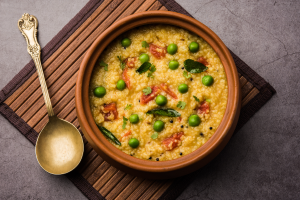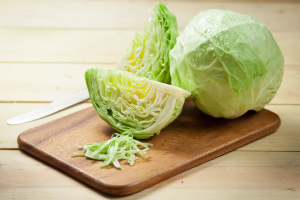

An egg is a powerhouse of nutrients, especially proteins. The humble food can be cooked in several ways and added to numerous dishes. This enhances the flavour while promising a complete nutritional boost. But because eggs can be cooked in different ways, each rolled-out delicacy has a different nutritional value. Read through for comprehensive egg nutritional information and a nutritional comparison of boiled egg vs. fried egg.
Egg Nutritional Information
Eggs are exceptionally nutritious. A whole egg contains almost every nutrient that the body requires. Furthermore, the egg is one of the rare foods that are classed as a complete protein source. It contains all the nine essential amino acids that the body cannot produce.
One whole, large-sized raw egg contains:
- Proteins – 6 gm
- Fat – 5 gm
- Magnesium – 6 mg
- Calcium – 28 mg
- Phosphorus – 99 mg
- Potassium – 69 mg
- Vitamin D – 41 IU
- Vitamin A – 6% of the RDA
- Vitamin B2 – 15% of the RDA
- Vitamin B12 – 9% of the RDA
- Vitamin B5 – 7% of the RDA
Besides these, eggs also contain healthy cholesterol, iron, selenium, choline, folate, carotenoids and a healthy dose of omega fatty acids.
Boiled Egg vs. Fried Egg
Eggs can be cooked in different ways. Each variety of cooked eggs has a slightly different nutritional value than raw eggs. Cooking style thus alters the nutrition quotient. Here’s a nutritional comparison between the two most popular styles of preparing eggs – boiled egg and fried egg. Read on for a boiled egg vs fried egg nutritional value comparison.
Boiled Egg – Nutritional Value
Boiled eggs are one of the simplest varieties of cooked eggs. Eggs are boiled in water for 3-5 minutes until the egg yolk turns hard. Invariably, hard-boiled eggs are eaten alone after sprinkling salt and pepper, but they also make a great salad topping.
1 boiled egg nutrition is as follows:
- Calories – 78 Kcal
- Carbohydrates – 0.6 gm
- Total Fat – 5.3 gm
- Protein – 6.3 gm
- Cholesterol – 187 mg
- Sodium – 62 mg
- Calcium – 25 mg
- Iron – 0.6 mg
- Magnesium – 5 mg
- Potassium – 63 mg
- Vitamin A – 75 ug
- Vitamin B1 (Thiamin) – 0.3 mg
- Vitamin B2 (Riboflavin) – 0.26 mg
- Vitamin B3 (Naicin) – 0.03 mg
- Vitamin B5 (Pantothenic Acid) – 0.7mg
- Vitamin B6 – 0.06 mg
- Vitamin B9 (Folate) – 22 ug
- Vitamin B12 – 0.56 ug
- Vitamin D – 44 IU
- Vitamin E – 0.52 mg
- Vitamin K – 0.15 ug
- Choline – 147 mg
- Copper – 0.01 mg
- Fluoride – 2.4 ug
- Manganese – 0.01 mg
- Phosphorus – 86 mg
- Selenium – 15 ug
- Zinc – 0.53 mg
- Beta-Carotene – 11 ug
- Lutein + Zeaxanthin – 353 ug
- Omega 3 Fatty Acids – 0.039 gm
- Omega 6 Fatty Acids – 0.6 gm
- Water – 37 gm
Fried Egg – Nutritional Value
Fried egg, also called the sunny side up, is a common breakfast serving. A fried egg is made by breaking the egg in a flat pan and heating it in slight oil over medium flame for about one minute. The cooked egg is sprinkled with salt and pepper to taste.
Listed below are egg fry calories and nutritional value:
- Calories – 90 Kcal
- Carbohydrates – 0.38 gm
- Total Fat – 6.8 gm
- Protein – 6.3 gm
- Cholesterol – 184 mg
- Sodium – 95 mg
- Calcium – 29 mg
- Iron – 0.87 mg
- Magnesium – 6 mg
- Potassium – 70 mg
- Vitamin A – 101 ug
- Vitamin B1 (Thiamin) – 0.02 mg
- Vitamin B2 (Riboflavin) – 0.23 mg
- Vitamin B3 (Naicin) – 0.04 mg
- Vitamin B5 (Pantothenic Acid) – 0.76 mg
- Vitamin B6 – 0.08 mg
- Vitamin B9 (Folate) – 23 ug
- Vitamin B12 – 0.45 ug
- Vitamin D – 40 IU
- Vitamin E – 0.6 mg
- Vitamin K – 2.6 ug
- Choline – 146 mg
- Copper – 0.04 mg
- Fluoride – NIL
- Manganese – 0.01 mg
- Phosphorus – 99 mg
- Selenium – 15 ug
- Zinc – 0.64 mg
- Beta-Carotene – 35 ug
- Lutein + Zeaxanthin – 543 ug
- Omega 3 Fatty Acids – 0.103 gm
- Omega 6 Fatty Acids – 1.4 gm
- Water – 32 gm
Boiled Egg vs. Fried Egg – Nutrition Comparison
Both boiled eggs and fried eggs are nutritionally dense and healthy. A close comparison between the two is as follows:
1. Calories
Both varieties of cooked eggs – fried egg and boiled egg, are high in calories. Boiled eggs have 26% fewer calories than fried eggs. Every 100 gm serving of fried eggs provides 196 calories as compared to 155 calories in boiled eggs.
2. Macronutrient Ratio
Protein, carbohydrates and fats are the three macronutrients. Boiled eggs have a macronutrient ratio of 34:3:63. On the other hand, for fried eggs the ratio is 29:2:70.
3. Carbohydrates
Both boiled eggs and fried eggs have low amounts of carbohydrates. Every 100 gm serving of boiled eggs has 1.1 gm of carbohydrates as compared to 0.83 gm of carbohydrates in fried eggs. The carbohydrates in both forms of cooked eggs are made of 100% sugar.
4. Proteins
Protein nutrition in eggs is well-pronounced. Eggs are one of the richest sources of protein. The protein count in a fried egg is slightly higher than the protein in 1 egg boiled for every 100 gm serving. Fried eggs have 13.6 gm of protein as compared to 12.6 gm of protein in boiled eggs per 100 gm of serving.
5. Saturated Fat
The saturated fat component in a boiled egg is lower than in a fried egg. For every 100 gm serving, a boiled egg contains 3.3 gm of saturated fat as compared to 4.3 gm of saturated fat in a fried egg.
6. Trans Fat
While boiled eggs do not contain Trans fat, their value in a fried egg is 0.04 gm per 100 gm of fried egg.
7. Cholesterol
Both fried eggs and boiled eggs have a high amount of good cholesterol. A fried egg has 401 mg of cholesterol as compared to 373 mg of cholesterol in a boiled egg per 100 gm of serving.
8. Vitamins
A fried egg has a higher concentration of Vitamins A, D, E and K than a boiled egg.
9. B Vitamins
The concentration of B vitamins is equally distributed between boiled eggs and fried eggs. While boiled eggs have higher levels of Thiamin, Riboflavin, and Vitamin B12, the levels of Niacin, Pantothenic Acid, Vitamin B6 and Folate is more in fried eggs.
10. Minerals
Fried eggs are a better source of calcium, iron and potassium than boiled eggs. Fried eggs have 24% more calcium, 59% more iron and a fairly high concentration of potassium than boiled eggs.
11. Antioxidants and Phytonutrients
Carotenoids are micronutrients found in plant and animal products. They are powerful antioxidants. Fried eggs are a richer source of Beta-Carotene and Lutein + Zeaxanthin.
12. Omega 3 and Omega 6 Fatty Acids
Fried eggs have significantly higher amounts of both omega-3 and omega-6 fatty acids than boiled eggs.
Conclusion
Eggs are incredibly rich in nutrients. A rich source of both macro and micronutrients, it is a must-have in daily diet. As consumption of raw eggs is linked to a high risk of contracting a Salmonella infection, eating cooked eggs is the best way to ensure adequate nutrition.
While eggs can be cooked in different ways, boiled eggs and fried eggs are the two most popular ways of preparing eggs. No doubt, depending on the cooking style the nutritional composition of boiled egg vs. fried egg varies.
A boiled egg has fewer calories than a fried egg. It also has higher levels of B vitamins, especially Thiamin, Riboflavin, and Vitamin B12. The macronutrient ratio i.e. the ratio between proteins, carbohydrates and fats is 34:3:63 for the boiled egg as compared to 29:2:70 for the fried egg.
But a fried egg is a richer source of minerals namely calcium, iron and potassium. It has high levels of Vitamins like Niacin, Pantothenic Acid, Vitamin B6 and Folate. The fried egg has a higher concentration of antioxidants and phytonutrients and Omega 3 and Omega 6 fatty acids than the boiled egg. Also, a few healthy components like xanthophylls get significantly low when eggs are boiled in water. But the oil in which a fried egg is prepared may decide the actual nutritional value of the fried egg. Using butter or unhealthy oils can reduce the final product’s nutritional value while increasing its calories and fat content. Therefore, cooking fried eggs in healthy oil is the key to good health and excellent taste.





Fried egg or boiled egg is more good?
A boiled egg has fewer calories than a fried egg. It has higher levels of B vitamins, especially Thiamin, Riboflavin, and Vitamin B12. A fried egg is a richer source of minerals namely calcium, iron and potassium. It has high levels of Vitamins like Niacin, Pantothenic Acid, Vitamin B6 and Folate. So if you are looking to reduce calories then boiled eggs are better. Otherwise, both are nutritious.
I wish iodine comparative was discussed here.
I fry my eggs in a non stick pan no oil or Butter Just salt and pepper.
I got detail information about boil vs fried eggs.
Thank you so much for your useful and helpful information ❤🙏
What is the best oil to use for frying eggs
It is always best to use an oil with a high smoke point and a mild flavour, so that it does not add any taste or smell to the egg. The oils should also be low in saturated fats such as canola oil, Grapeseed Oil, Sunflower Oil, Safflower Oil, or Avocado Oil. Extra virgin olive is also considered a good option for frying eggs.